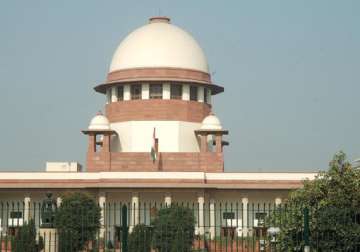New Delhi: The Supreme Court was on Wednesday told that allegations of sexual harassment against retired judges of the court and that of high courts who were holding positions in tribunals may be inquired under provisions similar to the law prohibiting sexual harassment of woman at workplaces.
'Some measures must be devised by the Supreme Court - along the lines of Parliamentary Act of 14 of 2013 (The Sexual Harassment of Women at Workplace (Prevention, Prohibition and Redressal) Act, 2013) - for dealing with such complaints against retired judges holding offices as chairmen or members of judicial tribunals,' eminent jurists Fali Nariman and P.P. Rao said in their report to the apex court.
Both Nariman and Rao were asked by the court to assist it in putting in place a mechanism to deal with complaints of sexual harassment against retired judges.
They were asked to assist the court in the course of a hearing of a petition by a law graduate who has alleged sexual harassment by a judge under whom she was interning in May 2011.
The report by the two jurists said: "Judges (howsoever high) are certainly not to be treated as immune from charges of sexual harassment of women at workplace if and when such charge is made and proved."
'But the point is that some special measures may have to be adopted for that purpose - qua the judges of the High Court and Supreme Court even when they have retired and then hold office as chairman and members of judicial tribunals, since they are a part of the structure or bedrock of an independent judiciary,' the report said.
Nariman and Rao said serving judges of the apex court or that of the high courts facing complaints of sexual harassment would be covered under the ground of 'proved misbehaviour' for removal from high office.
They said that until the Judicial Standards and Accountability Bill, 2012, becomes a law, the main question to be determined was whether the complaint of sexual harassment against the sitting judges - whether in court or chambers - can only be inquired into, investigated and ultimately determined in accordance with the existing constitutional provisions and not otherwise by some other special procedure.
Latest India News
